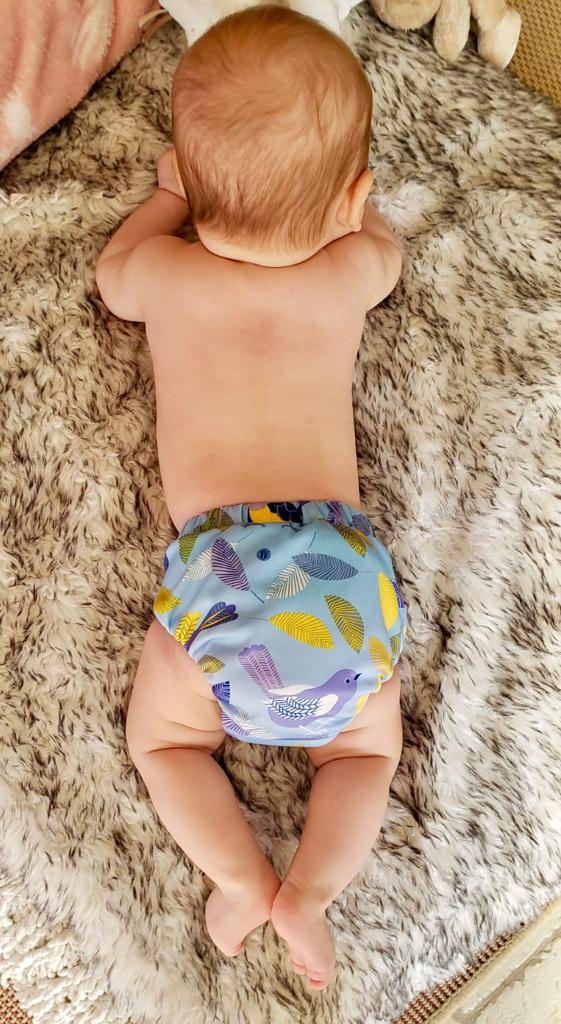Whether you use cloth or disposable nappies for your child, you won't be able to resist this collection. The fact that the clothes are made from 100% organic and fairtrade cotton is just one of the many reasons why we are thrilled to welcome Little Green Radicals on board!
Why do Little Green Radicals only use Fairtrade cotton?
 When Little Green Radicals started out back in 2005, founder Nick Pecorelli wanted to do business a little differently. Alongside some other wonderful UK brands, Little Green Radicals become one of the first companies to use Fairtrade certified cotton. Simply put, this means they pay more for the cotton they use, which gives more to the farmers, their families and the communities who grow it. Little Green Radicals work with fantastic cotton growers like Chetna Organics from Yavatmal in India, who now have nearly 36,000 cotton farmers who work together, sharing their knowledge and experience. Of course, it also means decent working standards throughout the supply chain, including the places where the cotton is spun into thread, turned into fabric and made into clothes. All the cotton they use is organic too. This is particularly important because intensive pesticide used to grow cotton is harmful to farmers and their families.
When Little Green Radicals started out back in 2005, founder Nick Pecorelli wanted to do business a little differently. Alongside some other wonderful UK brands, Little Green Radicals become one of the first companies to use Fairtrade certified cotton. Simply put, this means they pay more for the cotton they use, which gives more to the farmers, their families and the communities who grow it. Little Green Radicals work with fantastic cotton growers like Chetna Organics from Yavatmal in India, who now have nearly 36,000 cotton farmers who work together, sharing their knowledge and experience. Of course, it also means decent working standards throughout the supply chain, including the places where the cotton is spun into thread, turned into fabric and made into clothes. All the cotton they use is organic too. This is particularly important because intensive pesticide used to grow cotton is harmful to farmers and their families.How does Fairtrade benefit farmers?
 # Economic benefits
# Economic benefits
A fair price - Fairtrade farmers get paid a guaranteed minimum price, plus they have more bargaining power to work together and get a better price for their cotton.
Extra money - On top of this, farmers received the Fairtrade premium. This is an additional sum which goes into a communal fund for the farmers to use as they see fit.
Productivity - Fairtrade farms have better yields and crops through organic training, shared knowledge via cooperatives and investment.
 # Environmental benefits
# Environmental benefits
Protection - Fairtrade sets standards to protect the environment, including carbon reduction, water and soil quality, water management and no GMO’s.
Training - To encourage environmentally friendly practices, like developing nutrient-rich soils and encouraging wildlife to help control pests and diseases.
 # Social benefits
# Social benefits
Empowerment - Fairtrade farmers usually work together as a cooperative. This helps to gives them more power to negotiate better prices for their cotton.
Equality - Fairtrade Standards are designed to prevent gender inequality, increase participation and empower more women to access the benefits of Fairtrade.
Community - The extra premium benefits the whole community. Democratically elected representatives choose how it's spent and it is a really important part of Fairtrade.
![]()

Want to know a bit more about how our clothes are made? Here's a wonderful video from the Fairtrade Foundation that explores where cotton comes from and some of the difficulties faced along the supply chain. It highlights the difference we can make to people’s lives through our buying choices.
Adapted from: https://littlegreenradicals.co.uk/pages/fairtrade-pioneers




